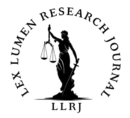Written by Rishika Raj,
Student , Dharmashastra National Law University, Jabalpur
April 2025
In India, religion has a significant impact on the country’s cultural, social, political, and economic landscape. If life can be equated with a cake than religion is not a piece of the cake alongside other pieces like politics, law, education, society etc., but is like a fruit which is present in every piece of the cake. Religion while being a testament of India’s culturally diverse background is also a cornerstone of conflicts. In a country where even the inter-caste marriages are frowned upon, inter-religious marriages are considered blasphemous. The already rarest occurrences of inter-faith marriages would totally fade away with introduction of strict controlling laws like Uttar Pradesh Prohibition of Unlawful Conversion of Religion Act, 2021 and even more stringent amendments jeopardizing the personal liberty and freedom of conscience. This law not only makes forceful conversions void but also invalidates the conversion made for the purpose of marriage giving rise to a popular term disparagingly described as ‘Love Jihad’.
Introduction
India is a secular country. Though the word secularism was included in preamble in 1976 through 42nd amendment, the idea was inherently present since the inception of our constitution through articles 25-28 of Indian Constitution. So, the state’s duty is not just to remain as a neutral entity but to actively protect the rights embodied in our constitution by creating conducive conditions. Following this, many states carved out Freedom of Religious Act to protect the rights of people vitiated through illicit conversions.[1]
Supreme Court in its judgement Rev Stanislaus vs State of Madhya Pradesh (1977)[2] stated that “Conversion narratives of and about converts reveal the construction and workings of religious freedom and the ways it promotes or suppresses people.” The judgment did not justify conversion as a right and permits state intervention when there is a clear violation of Fundamental Rights. The right to ‘propagate’ religion under article 25 of our constitution does not include forceful conversion through fraud, coercion or allurement. This judgement is criticized because of its failure to take wilful conversion into consideration.
In Salamat Ansari v State of UP (2020)[3] the high court held that religion conversions even for the sole purpose of marriage is considered valid and is a testimony of their freedom and liberties. And neither the state nor any individual can interfere with person’s choice of partner.[4]
But the ordinance which was introduced in 2020 by Uttar Pradesh’s government is in conflict with earlier judgment of Allahabad High Court.
The Legislation and its Constitutionality
Some rigid provisions of the Uttar Pradesh Prohibition of Unlawful conversion of Religion act 2021 which lays down a detailed procedure to be followed by the person being converted and the person doing the conversion. The involvement of District magistrate, Police and state machinery just to establish the intention, purpose and the cause of the conversion and publicly exhibiting the declaration for the world to see and object is a direct violation of fundamental right to privacy under Article 21. The long bureaucratic procedure for changing the way of life of a person when it’s an individualistic choice is a stark question to our constitutional morality. [5]The real problem lies in the vague provisions and the question of reasonableness when it comes to curbing forced conversions.
Current Development
The proposed amendments in Uttar Pradesh Prohibition of Unlawful conversion of Religion (Amendment) Bill,2024 have made the already stringent law more rigorous by making the grant of bail more difficult. The proposed amendment in which anybody can submit a complaint against allegedly forceful or fraudulent conversions is disgusting, as it empowers community organizations and other busybodies to arrest anyone who choose or support interfaith marriage. It snatches the individual autonomy and castigating people with choices. The burden of proof also lies on the one doing the conversion thus having an ascribed presumption of all conversions being forced unless proven otherwise.
The increased criminalisation of interfaith marriages and introduction of rhetorical umbrella terms like ‘anti-national elements’ which is devoid of any legal reasoning will erode the original objective of this law, making minority groups more vulnerable. The words like ‘allurement’ and ‘fraud’ is also not well-defined which vest unwarranted powers to the authorities to interpret it according to their whims and fancies.
The Socio-legal consequences
This kind of act reinforces the patriarchal mindset of the society, infantilizing women and setting up the narrative of women being incapable of making rational decisions and can be easily duped. It makes inter-faith marriages being viewed from the bigoted lens of suspicion.
Based on the studies conducted by UN commission on International Religious Freedom between 2016-18 highlighted that the existence of tough anti-conversion laws from a restrictive, strict and abusive environment especially for religious minority groups. It creates a state of fear among the interfaith couples[6]. The women in rural areas may face more social stigmatization on changing the status quo of their own religion. The women are subjected to banishment and social exclusion especially in rural areas as compared to women in urban areas where there is more acceptance to religious diversity. But interfaith marriages are still scrutinised. They are termed perilous to existing social order irrespective of place.
The Uttar Pradesh anti-conversion laws and the recent amendment is also in contravention with Allahabad’s judgement in in case of Safiya Sultana vs State of UP[7] that the publication of notice regarding the intended marriage and public objections under sec 6 and sec 7 of Special marriage act,1954 is not mandatory. The courts have time and again reinforced the policy of upholding the individual fundamental rights above everything.
Way Forward
While in general it is imperative to introduce legislations for restraining fraudulent conversions through coercion and interference by state in such matters is not a violation of article 25. Stricter punishments and well drafted laws will help in creating deterrence in the mind of people doing unlawful conversions. It will also help in the protection of minors, women and disadvantageous groups who are at major risks of such incidences.
But such legislation should not come at a cost of right to privacy, right to free conscience and right to freedom of choice. The law must be based on concrete study of ground reality and should be free from legal ambiguities to protect the interests of common people and prevent further exploitation. The purpose of such legislations will be defeated if it damages the social fabric. It needs to address the real issues of unlawful conversions instead of just being reduced as a weapon to disrupt the society’s peace. The ambiguous terms must well-defined to prevent harassment of minorities. The inclusion of 3rd party must be restrained to withheld privacy concerns. The law must be detailed but not tedious to discourage people from converting according to their choice. And lastly, the people must not be pressured to question their rightful choices by family, friends, neighbours, state and law protecting the sanctity of individual choices above everything else.
Conclusion
Secularism is the heart of Indian constitution which acts as a cohesive force binding all the sections of society. The key idea of such laws is to protect people’s rights from being violated through forceful conversions. The confounding interpretation of anti-conversion laws may lead to misuse against minorities instead of safeguarding their rights. The dubious nature of laws shouldn’t be used as an excuse to undermine the concept of freedom of religion. Such laws only exacerbate the already existing communal tensions. Law should be used to entitle citizens not to intimidate them.
For anti-conversion laws to be effective, there should be balance between prevention of unlawful conversions and protection of individual dignity. This can only be ensured when they are free from any biasness, interference of unnecessary outside parties and vivid laws free from ambiguities. In light of this, laws must change to reflect democratic ideals and constitutional values in order to preserve secularism’s spirit and keep the country united.
[1] James Andrew Huff, Religious Freedom in India and Analysis of the Constitutionality of Anti-Conversion Laws, 10 RUTGERS J. L. & RELIGION 1 (Spring 2009)
[2] Rev Stanislaus v. State of Madhya Pradesh, AIR 1977 SC 938
[3] Salamat Ansari v. State of Uttar Pradesh, (2020) 1 SCC 551
[4] Faisal Ahmed, Constitutionality of the Uttar Pradesh Prohibition of Unlawful Religious Conversion Ordinance, 2020, 4 INT’l J.L. MGMT. & HUMAN. 2561 (2021).
[5] Uttar Pradesh Prohibition of Unlawful Conversion of Religion Act, 2021, No. 34, Acts of Uttar Pradesh State Legislature, 2021 (India)
[6] Synthiya Muki S., A View on Anti-Conversion Laws in India, 3, INDIAN J.L. & LEGAL RSCH. 1 (October-November 2021)
[7] Smt. Safiya Sultana Through Husband Abhishek Kumar Pandey & Another v. State of U.P. Through Secretary Home, Lucknow & Others, AIR 2021 All. 56 (India)



Very well-finished and detailed information.